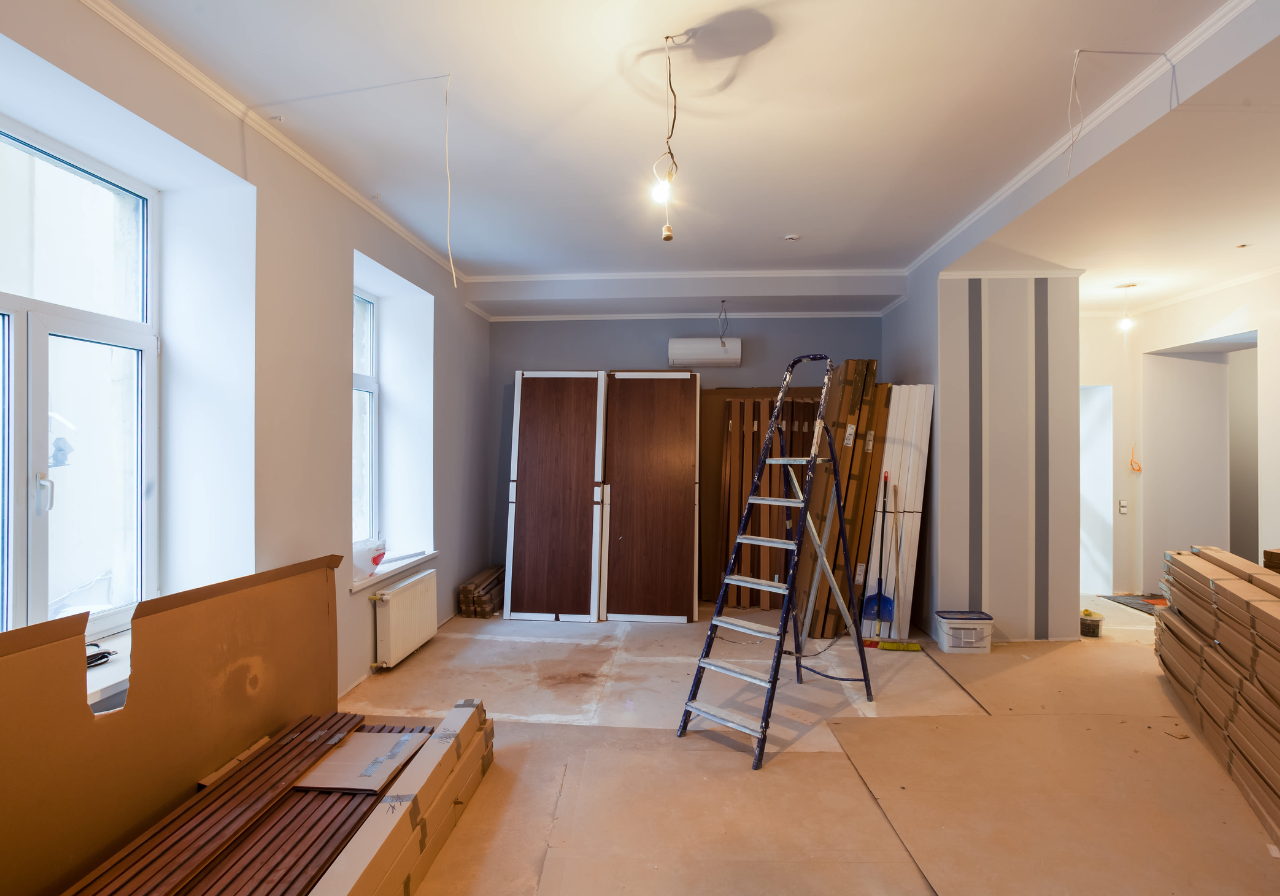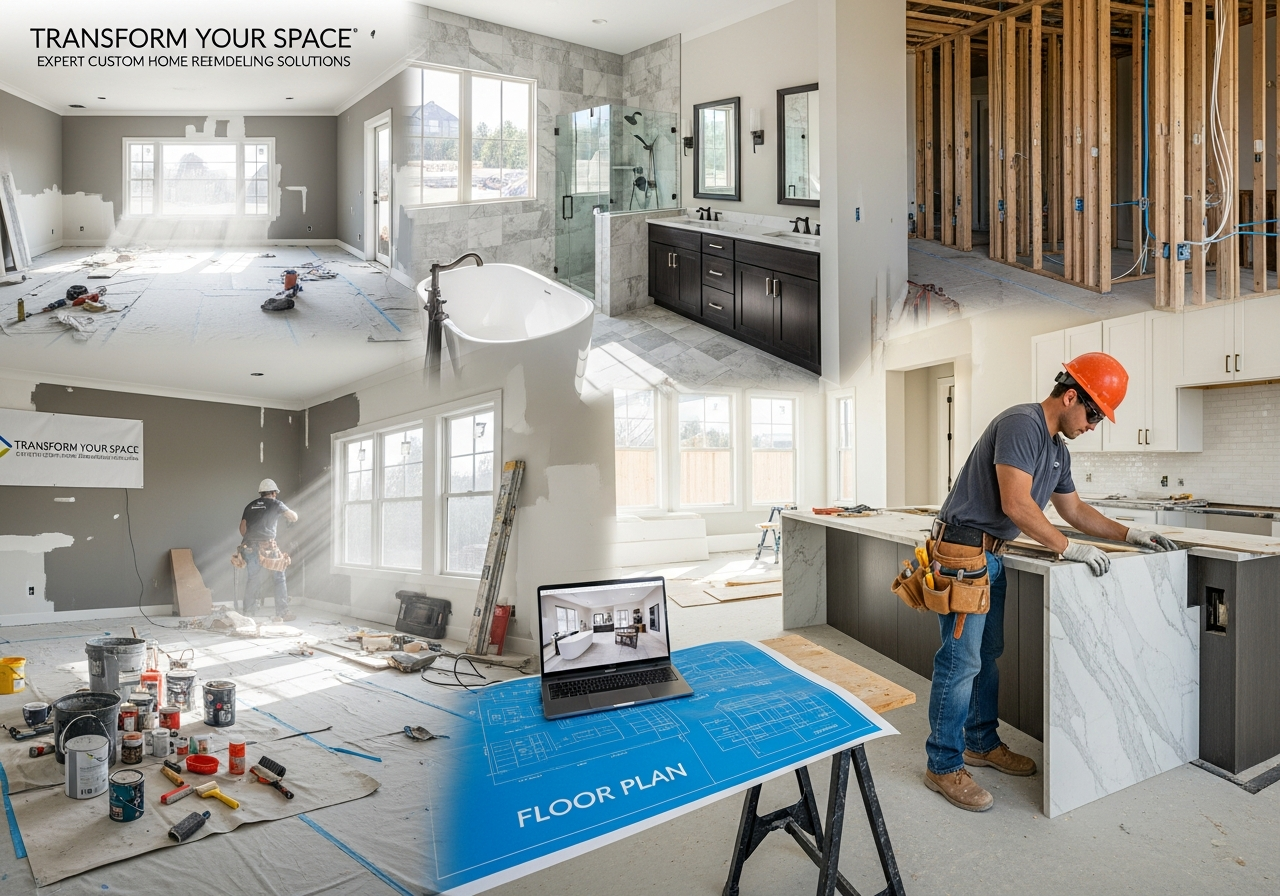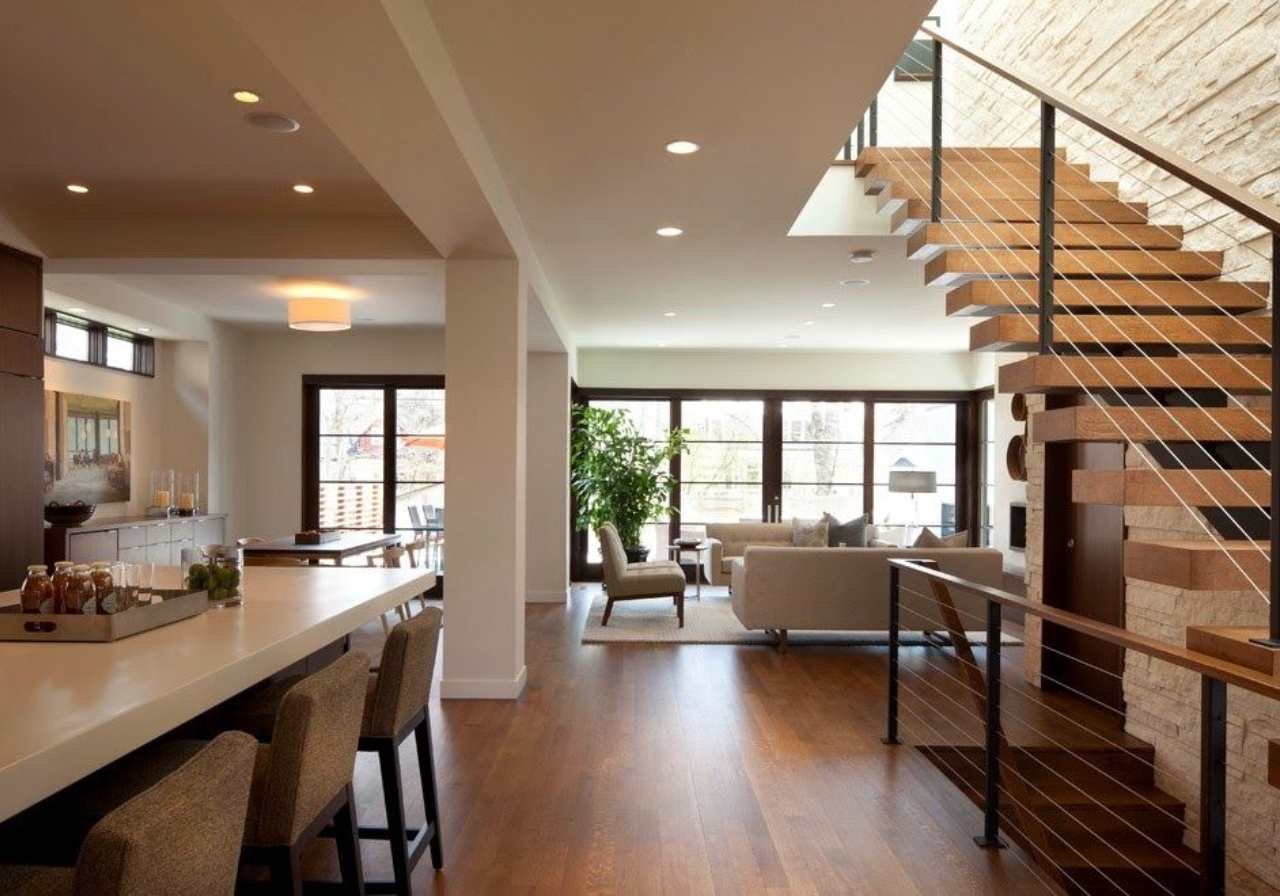Deciding whether to renovate or rebuild a house in 2025 is one of the most financially significant decisions a homeowner can make. With construction costs, energy standards, and real estate prices constantly shifting, understanding your best option requires careful planning. In this guide, we’ll break down every angle, from cost comparisons to resale value, helping you determine whether it's smarter to remodel your existing home or start fresh.
Renovation vs. Rebuild: What’s the Real Difference?
Before diving into the cost, let’s define the terms:
Renovation means updating existing parts of your home—kitchen, bathrooms, HVAC, roofing, etc.—without altering the structural footprint. This is ideal when the foundation and layout are sound, but the finishes or systems need upgrades.
Rebuilding involves tearing down the existing structure and constructing a new home, usually on the same foundation or lot. This option gives you full control over layout, efficiency, and materials but often comes with higher upfront costs.
What Is the Cost to Renovate in 2025?
Renovation costs vary significantly depending on the scope of work, materials, and region. On average, homeowners in the U.S. pay between $60 to $150 per square foot for whole-home renovations.
- A mid-range remodel for a 2,000 sq ft home might cost $120,000 to $250,000.
- Small upgrades (paint, flooring, fixtures) may cost as low as $15,000 to $50,000.
Factors affecting cost include:
- Labor and material availability
- Quality of finishes
- Local building codes and permits
Explore our Home Remodeling Services to learn how we evaluate and price these projects based on your home’s current condition.
What Is the Cost to Rebuild a House in 2025?
A complete rebuild typically costs $100 to $500 per square foot, depending on location, complexity, and finishes. That means rebuilding a 2,000 sq ft home would range from $200,000 to $1,000,000, with most homeowners spending around $350,000 to $500,000.
Add to that:
- Demolition costs: $4 to $17 per sq ft or roughly $8,000 to $34,000
- Permits and design fees: 10% to 20% of the total project
- Temporary housing if the property becomes uninhabitable
Compare this to a full remodel, and it’s clear that rebuilding has a much higher upfront cost.
Comparing Costs: Renovating vs. Rebuilding
If your renovation costs exceed 50% of your home's value, a rebuild might be the smarter investment long term.
Hidden Costs You Shouldn’t Ignore
Renovation Hidden Costs
- Surprises inside walls: rot, termites, old wiring
- Permit delays or code upgrades
- Matching existing finishes (flooring, paint)
Rebuilding Hidden Costs
- Foundation issues (even if reusing it)
- Higher design and engineering fees
- Hookups for utilities and inspections
- Landscaping and driveway rework
When Does It Make Sense to Renovate?
You should lean toward renovation if:
- Your foundation, plumbing, and electrical systems are still solid
- You love your current home’s layout or historical character
- Your neighborhood zoning restricts new builds
- You're on a tighter budget
Also, if you're doing selective projects like a kitchen or bathroom upgrade, referencing our guide on Kitchen Remodel Cost helps you focus your budget effectively.
When Is Rebuilding the Better Option?
Rebuilding becomes the better long-term solution if:
- Your existing structure is unsafe or non-compliant with modern codes
- You want a completely different layout or additional square footage
- Energy efficiency and smart home tech are a priority
- Your home has suffered major damage (e.g., fire, flood, or structural failure)
If you're pricing everything from scratch, understanding whole-home remodel costs versus full construction gives you a realistic idea of what to expect.
Which Adds More Value: Remodel or Rebuild?
Renovation ROI
- Kitchen remodel: 70% - 80% return
- Bathroom remodel: 60% - 75%
- Whole-home remodel: 65% - 80%
Rebuild ROI
- Brand-new construction typically commands a 20% - 30% premium over older homes in the same area
- Modern floor plans and energy efficiency improve marketability
How Long Does Each Option Take?
- Renovation: 3 to 6 months
- Rebuild: 9 to 18 months, depending on permitting, demolition, and weather
Keep in mind that both processes could be delayed by supply chain issues, labor shortages, or permit approvals.
Environmental Impact
Renovating
- Lower carbon footprint by preserving structure
- Less waste sent to landfill
- Ability to upgrade insulation, appliances
Rebuilding
- More energy-efficient over time
- Uses sustainable materials and systems
- Higher upfront impact, but lower long-term energy usage
Should You Finance or Use Cash?
Home equity loans and renovation loans are ideal for remodels, especially if you’re staying within 60% of your home’s value. For rebuilds, consider a construction loan, which rolls into a traditional mortgage post-completion.
Tip: Always have a contingency budget of 10-20% for both renovation and rebuilding.
Real-World Example Comparison
Homeowner A (Renovation)
- 2,000 sq ft home
- Budget: $150,000
- Upgrades: kitchen, bathrooms, windows, HVAC
- ROI: Estimated 75%
Homeowner B (Rebuild)
- 2,000 sq ft home
- Budget: $420,000 (including demolition)
- Custom layout, solar panels, smart home
- ROI: Estimated 95% with long-term savings
Conclusion: Which One Is Right for You?
In 2025, whether you should rebuild your house or remodel your home comes down to cost, condition, and long-term goals. Renovation is more budget-friendly and quicker, but it may not solve deep structural problems. Rebuilding is a larger investment, but it allows for customization, efficiency, and future-proofing your lifestyle.
If you’re still not sure, consult with a professional to evaluate your existing home. You may find that one option brings you significantly more value, both financially and functionally.
3D Home Improvements proudly offers renovation, design-build, and remodeling solutions tailored to homeowners considering whether to renovate or rebuild. We’ll guide you every step of the way, ensuring your vision meets your budget and goals.
FAQs
1. Is it more expensive to rebuild than to renovate?
Yes. Rebuilding typically costs 2x to 3x more upfront than remodeling.
2. When should I tear down my house and rebuild?
If structural issues are beyond repair or if the cost of renovation exceeds 50% of your home's market value.
3. Can I live in my home during renovation?
Yes, in many cases you can stay on-site during renovations, unlike with rebuilds.
4. What is the cheapest way to rebuild a house?
Keep the footprint simple, limit custom features, and choose cost-efficient materials and finishes.
5. Do I need new permits to rebuild?
Yes. Rebuilding requires full permitting, including zoning, environmental reviews, and inspections.





